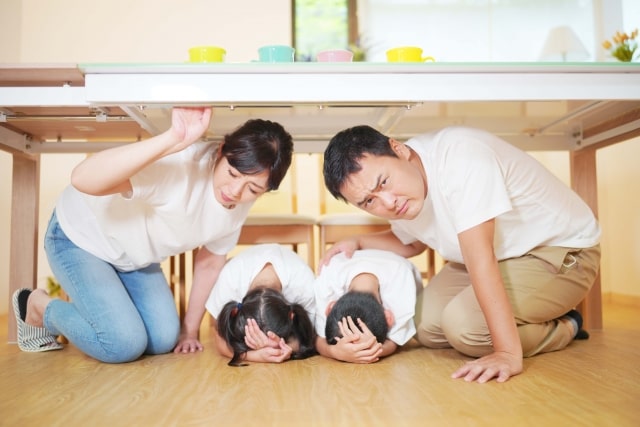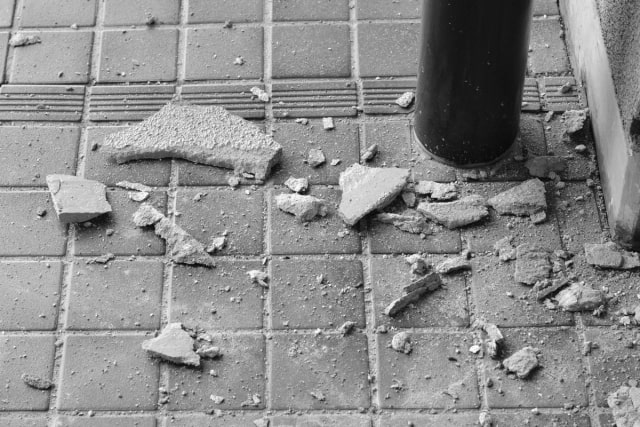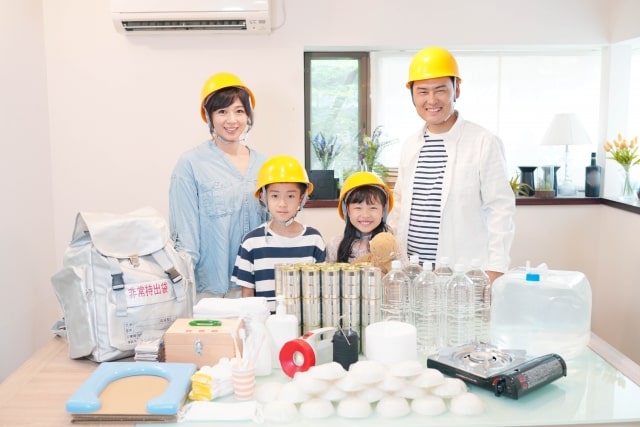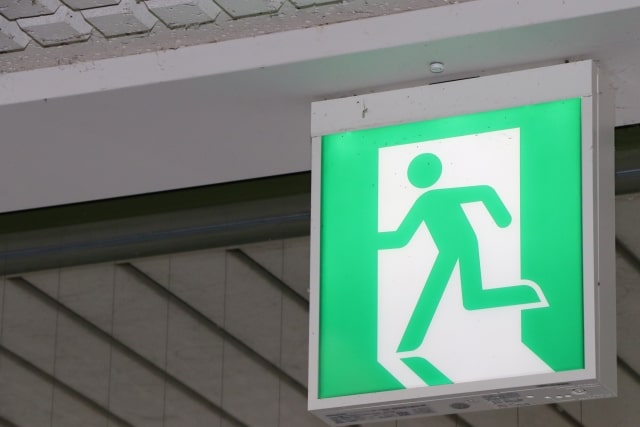How to Prepare for an Earthquake in Japan
2021-12-20
Japanese Culture & Customs

Japan is well-known as an earthquake-prone country, and major earthquakes can occur any time at any region. While it is impossible to predict and prevent earthquakes, we can minimize the damage it causes to our lives by being prepared.
In this article, we explain how to prepare for an earthquake in Japan with 10 different pointers on actions you should take before, during, and after an earthquake.

Securing Your Home
Injuries from earthquakes commonly occur at home. The following are some pointers on how you can prepare your home to minimize damage and injuries in case of an earthquake.
1.Stabilizing your furniture
Falling furniture or other heavy objects may not only cause injuries, they may also become impediments to your escape route during an earthquake. In order to reduce the risk of damage and injury, you should arrange furniture and heavy appliances properly and secure them from falling or tipping over.
Arranging your furniture:
・Arrange your furniture in a way that ensures that your doorway and other escape routes do not become obstructed.
・Store heavy items in lower shelves or drawers. Avoid storing heavy and breakable items in high places.
Securing your furniture:
・Use stabilizing devices to prevent furniture from falling or tipping over.
・For stackable furniture, connect upper and lower units together using flat brackets.
・For furniture placed along walls, use L-brackets to secure them to the wall.
Securing glass furniture and objects:
・Apply anti-shatter film to glass doors and windows.
・Close cupboards firmly to prevent glassware and china from falling out.
・For hanging cupboards, install safety latches to prevent them from opening during an earthquake.
2.Avoiding injury from broken objects
To avoid having shards of broken glass, apply anti-shatter film to glass doors and windows.
Have a pair of slippers or sneakers nearby in case you have to walk on broken glass or debris.
Prepare a flashlight in an easily accessible place in case a blackout occurs.
3.Checking and reinforcing your house
Check your house exterior to see if there are cracks or any part that needs repairs.
You can also hire a professional to conduct a seismic inspection and any necessary retrofitting.
If you have concrete walls or fencing, check if they are damaged or tilted, and make any necessary repairs. Collapsed walls are a common cause of injury and death during earthquakes.
4.Preparing an Emergency Bag
An emergency bag contains various essentials to help you survive in case you need to evacuate or the electricity and water supply gets cut off. It is important to think about what you need to put in the bag, and make sure that it does not become too heavy to carry. For food items, make sure to check their expiration date, and replace them with new ones regularly.
Recommended items to put in the emergency bag:
・Drinking water
・Food packs
・Change of clothes
・Cash and copy of important documents
・Portable radio
・Flashlight
・Batteries
・First aid kit
・Blanket
・Raincoat
・Tissue and toilet paper
・Candles
・Lighter or matches
Other items to prepare and stockpile in your home:
・Food and water
・Portable cooking stove and gas canisters
・Fire extinguisher
・Hammer, shovel, crowbar, waterproof sheet, etc.

Fire Prevention
When a strong earthquake occurs, one of the most important things to do is prevent secondary disasters such as fires. The following are some actions you should take to prevent the outbreak of fires after an earthquake.
5.Preparing a fire extinguisher
Check and remember the location of the fire extinguisher in your home. If you do not have one, buy one and keep it in a handy place.
Keep your bathtub full of water at all times in case the water supply is cut off, but make sure to keep small children away.
6.Detecting fires and turning off fire sources
Check that a fire alarm is installed in your house, and make sure that it is operating properly.
Unplug all electrical devices that are not in use.
Install an earthquake-tripped circuit breaker that automatically shuts down power during a strong earthquake to help prevent electrical fires.

Communication and Information Gathering
In order to be able to act calmly after an earthquake, it is important to communicate with your family and know the necessary information beforehand. The following are some pointers regarding communication and information gathering to prepare for an earthquake.
7.Communicating with your family
If you are living with your family, you should discuss the following items in advance.
・Designation of duties (i.e. who is in charge for putting out fires, securing escape routes, etc.)
・Meeting place and communication method in case you are not together when the earthquake occurs and going home is difficult
・Nearest evacuation center and evacuation route
8.Learning about your neighborhood and region
Check the hazard map of your local area and find out the topographical features and hazardous places.
Know the location of evacuation centers, evacuation routes, and other facilities such as large parks and convenience stores.
You can also create your own hazard map that lists downs evacuation routes and the location of important places.
Cooperation with neighbors can be important when a disaster strikes. Talk with your neighbors regularly and share information about disaster preparedness.
Learn about your local area’s history of disasters.
9.Increasing your knowledge of disaster preparedness
Check the local news regularly to find out any new information about disasters and preparation.
Join public lectures and community discussions about disaster preparation.
10.Practice your disaster preparedness skills
Participate regularly in disaster drills held by the local fire department or community associations. These can include drills and training about firefighting, physical protection, evacuation, first aid trainings, and disaster communication.
Walk along your actual evacuation route to designated evacuation areas.
Useful Links
The following are some useful links related to disaster preparedness in Japan.
・Japan Meteorological Agency Disaster Mitigation
https://www.jma.go.jp/jma/kokusai/multi.html
・JNTO Japan Safe Travel Twitter account
https://twitter.com/japansafetravel
・NHK World Bosai Web
https://www3.nhk.or.jp/nhkworld/en/radio/bosaiweb/
・MLIT Disaster Prevention Portal
https://www.mlit.go.jp/river/bousai/olympic/en/index.html
Summary
This article listed several pointers and specific actions you should take to prepare yourself for an earthquake in Japan. We hope this can serve as a useful reference to help you remain calm and act appropriately in case a major earthquake occurs.

